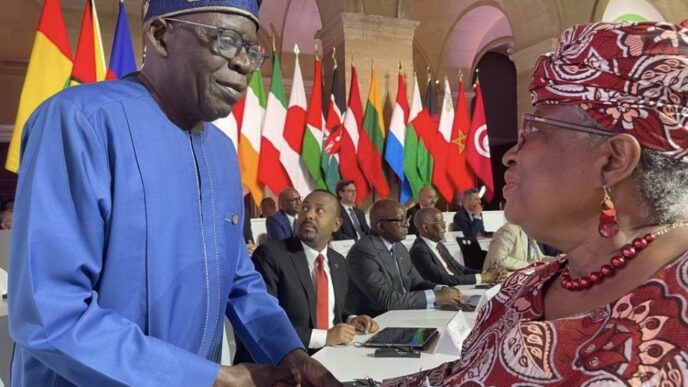Babagana Zulum
Babagana Zulum, governor of Borno, says he will rally lawmakers from the north to reject the tax bills proposed by President Bola Tinubu.
Speaking with BBC, Zulum said previous laws took years of debate, wondering why the proposed legislations are being rushed.
He said the bills would cripple the north and boost the economy of Lagos state.
The governor added that the reforms would lead to poverty, hunger, and hardship in the north.
Advertisement
Zulum said Tinubu should remember that the north handed him a chunk of the votes in the 2023 presidential election.
“He should not ignore our concerns and the rumours that the north is not in his favour,” he said.
He also asked the government not to pressure lawmakers into passing the bills.
Advertisement
“What we fear is that some lawmakers might secretly support the bills, and politicians might bribe or persuade their members to vote for them,” he said.
Zulum urged lawmakers from the north to remain vigilant and protect their interests, as the laws will harm them if passed.
Ali Ndume, who represents Borno south in the upper legislative chamber, has also vehemently opposed the tax reform bills at every opportunity — including on the floor of the senate.
BACKGROUND
Advertisement
In October, Tinubu asked the national assembly to consider and pass four tax reform bills.
They include the Nigeria tax bill, the tax administration bill, and the joint revenue board establishment bill.
The Northern States Governors Forum (NSGF) opposed the bills, while the national economic council (NEC) asked Tinubu to withdraw them for further consultations.
However, the president said the bills would not be withdrawn, adding that the national assembly could make amendments as they deemed necessary.
Advertisement
On Thursday, the senate passed the tax reform bills for a second reading.
THE BILLS
Advertisement
Taiwo Oyedele, chairman of the presidential committee on fiscal policy and tax reforms, said the proposed changes to Nigeria’s tax laws will significantly boost revenue across states.
Addressing senators at the national assembly on November 28, Oyedele said the impression that the reforms are geared towards boosting the revenue of Lagos is an erroneous one.
Advertisement
“We see danger in certain states like Lagos taking the federal government to court over VAT. We believe that the right solution is for us to address the concerns that those states have, so that we can have a political solution to this problem rather than one that says let’s wait for the supreme court,” he said.
“Our proposal is that every state would get credit for the economic activities within their jurisdiction.”
Advertisement
Oyedele said the tax reforms would ensure revenues “double within the next two to three years as a share of gross domestic product (GDP)”.
“If we are moving from 9 percent to 18 percent, that means we are doubling it,” he said.
“It turns out that most of what people need for survival carry tax in Nigeria today. We believe that it is time for us to remove value added tax (VAT) from essential consumption or essential items.
“Nobody should have to think between making a choice of eating bread or garri because of VAT.
“Our proposal is that food should no longer carry VAT. Education and health should not carry VAT.
“Four out of every five consumption items by the masses will no longer carry VAT.”
The bills seek to reduce company income tax (CIT) to 27.5 percent from an average of 30 percent over the same period.
Oyedele said low income earners would be fully exempted from tax, adding that “this is consistent with the policy philosophy of not taxing poverty”.
“Also, self-employed persons and entrepreneurs will enjoy tax exemptions available to individuals in formal employment,” he said.
“The VAT reform includes a zero (0%) rate for food, education, health, and exemption for rent and public transportation.
“These items constitute an average of 82% of household consumption and nearly 100% for low-income households, which will ease the rising cost of living for the masses.
“In addition, there are proposed changes to the income tax laws to facilitate remote work opportunities for Nigerians in Nigeria within the global business process outsourcing sector. This will empower our youths to play a key role in the digital economy space.”











